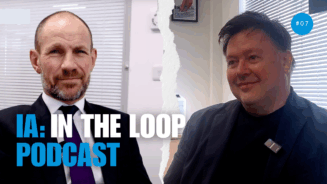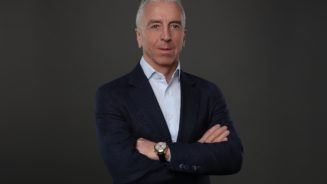David Kneeshaw, chief executive of RL360°, said he thought it might take longer to see any change in Dubai.
“The regulatory trend is made up of two parts,” he said. “One is regulatory change here in the UAE, and I would love to think that things will be absolutely clear cut and done in two to three years, but I doubt it. I think it will take longer.
“The other side of regulatory trend, which will actually happen much quicker, is that all the manufacturing jurisdictions, not just the Isle of Man, will be adopting new rules very quickly, somewhere between two and five years,” he said.
Kneeshaw said that coming down the track very quickly for advisers and life companies was commission disclosure. “I guarantee that in two to five years,” he said.
Changing landscape
When asked about the future landscape for the life industry across the Middle East, demand for protection products stood out.
MetLife’s Alexandrescu said penetration in the life insurance market was still low across the region, and there was growing demand for medical insurance and a need for income protection.
“It is a growing population – the expat population grew very fast in the past few years – the disposable income and the standard of living are increasing. These are prerequisites for growth.”
He said MetLife had seen double-digit growth in the life insurance market. “We see potential and we want to be part of it here in the Gulf,” he said.
MetLife has also seen strong demand for medical insurance products helped by the structural reforms in the medical sector that are now under way in the UAE.
Old Mutual’s Dolan said the demographics of the region pointed to greater opportunities in areas other than the traditional western expat market.
“What is also of interest is the opportunity in other segments of the market, which is the non-resident Indian and also the Arab-speaking national segment,” he said.
Jopp agreed that, from Zurich’s perspective, there was a huge opportunity in the protection market.
“We see a huge opportunity in the whole protection space. Whether that is income protection or through illness, they are areas where there is scope for growth and there are huge opportunities, so we are big fans,” he said. “Our own research indicates that most of our customers are severely under-insured, and there is an opportunity there for advisers to target that.
“We are also seeing the type of expat changing and our market developing. In terms of the NRI population, I think that offers an opportunity for growth as well.
“What is absolutely clear to me is that good advice is needed now more than ever. Good quality IFAs will always have a role to play, and I think the days of not having as much transparency or of not quite understanding the sorts of products that were being offered to customers are numbered,” Jopp said.
Kneeshaw said he saw lots of opportunity in the Middle East. “I agree that a lot of the consumer needs are not being properly dealt with. Life insurance has always been undersold or under-advised by Anglo-Saxon style advisers, for example. Not just in this region but in every region.
“Is it a growing market? Yes. Is there access to the market and is it stable? Yes. I think there is a lot of opportunity.”
Charged issue
But as the panel discussion proceeded it was clear in questions from the audience that the future charging structure by life companies was a key issue, especially in light of the UK’s Retail Distribution Review, which had effectively banned commissions in favour of fees.
Jopp said Zurich was continuously looking at its propositions. “The charging structure is one element of the proposition, and I think we have to remain competitive and develop what the market and our customers need. That is an ongoing process,” he said.
“We should try and bring to the market the best possible products that fulfil the needs of the customer. That doesn’t always mean that a product that is sold in Germany or is sold in Australia will necessarily meet the needs of the customer in this base.”
Old Mutual’s Brendan Dolan said he believed that in the next two or three years, more distributors and providers would be more proactive in this area, and there would be a greater focus on the customer outcome.
“I don’t think the RDR will come to the UAE for a while,” he said, adding that it was likely that change would come as people anticipated the future direction of regulation.
“Indications are that there will be a movement away from upfront commissions,” he said. “I think the distributors that don’t move and transition towards a lower commission and more outsourcing are going to get caught out in not too many years down the line, to be honest,” he said.
MetLife’s Alexandrescu said it was very fortunate that in the UAE the regulator was open to discussion and taking advice on the best practices. “We can advise them on what is the best for this market, and to avoid the biggest danger, to have unserved clients.
“Sometimes, some segments of the population don’t get the right service because the distributions after the regulation changes are not strong enough to survive and they disappear,” he said in an apparent reference to the ‘advice gap’, which has emerged in places such as the UK.
“This is something we have to avoid, especially here where the penetration is very small,” he said.
RL360°’s Kneeshaw was more emphatic. “I do not believe the UAE will have RDR type regulation in the next few years.”




